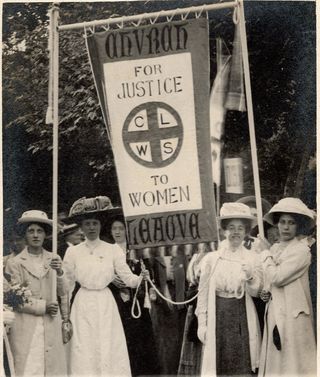Bias
Why Has a Woman Never Been President of the U.S.?
As you consider your own answer, think about kids, too.
Posted April 8, 2020

During the 2016 election cycle, colleagues and I interviewed nearly 200 5- to 11-year-old children in five U.S. states (Patterson et al., 2019). As part of the interviews, we first asked whether a woman had ever been president of the US. About 65% of the children knew that a woman had never served. We explained the facts to the other 35% of children. Then we asked: Why has a woman never been president before?
Only 25% of the children mentioned gender discrimination. Some of the responses demonstrated an understanding of the history of women’s rights in the country. For example, a 10-year-old Latinx boy said, “A long time ago, girls weren’t allowed to vote.” Other children’s responses reflected an acknowledgment of current discrimination, as with an 8-year-old Latinx girl who said, “Men don’t think women are tough enough or brave,” and an 8-year-old White girl who said, “A lot of people think stuff that’s dumb and think men are better than women.” These children had a schema for gender discrimination.
Some people think it is a good thing that the remaining 75% of children did not attribute the lack of a woman president to gender discrimination. These people worry that learning about gender discrimination may make girls feel hopeless or boys feel guilty. However, research suggests that these concerns are unfounded.
In an intervention study (Pahlke, Bigler, & Green, 2010), teaching middle school students about the gender discrimination experienced by historical figures like Sandra Day O'Connor and Elizabeth Blackwell led girls to be more interested in working to achieve gender equality, without making them feel personally vulnerable to discrimination or worried about pursuing non-traditional careers. Boys did not experience elevated levels of guilt or defensiveness. Overall, learning about gender discrimination did not negatively impact boys and led girls to want to contribute to the breaking of glass ceilings.
In addition, having an understanding of gender discrimination in politics can help children explain the gender disparities they see. Without that understanding, children often rely on problematic explanations.
For example, many of the children in the Patterson et al. (2019) study focused on deficiencies in women when trying to explain why a woman had never been president of the US. Children said things such as “Women aren’t strong” (6-year-old African American girl), “Women are not confident because they are very timid” (6-year old-White boy), and “I’m guessing men read more books” (7-year-old White boy). Other children suggested that no women wanted to be president. As a 6-year-old Latinx boy explained, “Women don’t like to be president.”
The truth is that gender discrimination does help to explain why a woman has never been president of the US. In addition to historical factors (e.g., women were not allowed to vote until 1920), recent work suggests that adults’ gender-related attitudes predict both their views of specific women candidates (e.g., Pahlke, Bigler, & Patterson, 2018) and women candidates in general (see Bos, Schneider, & Utz, 2017 for a recent review of factors that impact prejudice against candidates). Talking to children about gender discrimination will help prepare them to both understand current gender discrepancies and work to reduce those discrepancies in the future.
References
Bos, A. L., Schneider, M. C., & Utz, B. L. (2018). Navigating the political labyrinth: Gender stereotypes and prejudice in US elections. In C. Travis & J. White (Eds.), APA Handbook of the Psychology of Women (pp. 367-384). Washington, DC: APA.
Pahlke, E., Bigler, R. S., & Green, V. A. (2010). Consequences of learning about historical sexism on early adolescents' occupational judgments and aspirations. Journal of Early Adolescence, 30, 854-894. doi:10.1177/0272431609361200
Pahlke, E., Bigler, R. S., & Patterson, M. M. (2018). Gender-related attitudes and beliefs predict White women’s views of candidates in the 2016 United States presidential election. Analyses of Social Issues and Public Policy, 18, 34-60. doi:10.1111/asap.12148
Patterson, M. M., Bigler, R. S., Pahlke, E., Brown, C. S., Hayes, A. R., Nelson, A., & Ramirez, C. (2019). Toward a developmental science of politics. Monographs of the Society for Research in Child Development, 84(3). doi:10.1111/mono.12410


